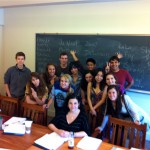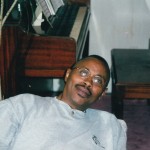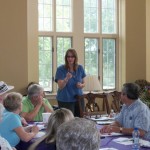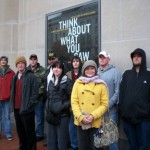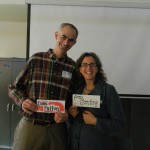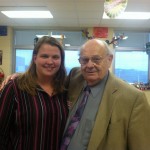Reflections: On Austrian Soil
Forums › 2023 Summer Seminar › On Austrian Soil 2023 Summer Seminar Responses: due MAY 30 › Reflections: On Austrian Soil
-
AuthorPosts
-
-
May 29, 2023 at 9:02 am #31726
On Austrian Soil by Sondra Pearl: My first reading in 2021 was grounded in the social foundations of schooling, and specifically on the power of the curriculum. I focused on the hidden curriculum and how ideologies and propaganda are masked within it. We know both were explicit in Nazi curriculum I concluded then and now that classroom spaces are not neutral by any means. In fact, classrooms are spaces for contestation, resistance, and hope.
On rereading “On Austrian Soil”, I was reminded that Sondra is showing us that we all have stories. Our stories are similar in the sense that they are informed by our environment. Our world view and our attitude as educators are also shaped by our lived experiences and how we were socialized through the education system. What speaks.
It is the humanism implied in the pedagogy of hope which brings us closer to the ethical responsibilities of teachers. Sondra honors this responsibility though self-reflection, and I consider this critical practice. This is to say that it is important for us as educators to understand our own backgrounds and ask a critical question “Who Am I” (p.xiii). Throughout the pages Sondra returns to this critical question one way or the other, and she delicately guided her students to ask themselves the same question.
As Sondra paraphrases van Manen (p.52) “….we are not separate from the world, but rather intimately connected to it”. Sondra paraphrases van Manen’s Heideggerian approach to our understanding of live experiences as part of critical teaching practice which to me is also very Freirian as in “Reading the word and the world”. Both emphasize the ethical responsibilities of educators to get to know themselves and their students in pursuit of critical classroom inquiry. For me Sondra follows the same guided practice with her students in asking them to dig deeper within themselves seeking the truth. I like Sondra’s approach in her seminar. She guided her students through classroom research methods essentially to show them that knowledge is power, or that they are intricately bound together as Michael Foucault would say.
Sondra shared Margaret’s reflection in chapter 2 (p.31) which I think captures the essence of where teachers can be when classroom inquiry is guided with asking students to dig deeper into thir lived experiences. Margaret writes,
“………..A mind that asks questions, reflects, and dares to speak out for all the values once
acknowledged to be worthy…….will be the goal I set for the students in my classroom”.
Holocaust, Genocide and Human Rights education are difficult subjects to teach in a classroom, but I believe if teachers can scaffold knowledge as Sondra did for her students in this seminar, we can get our students to places where they too can ask questions, speak out, and effect action for social change. -
May 30, 2023 at 5:23 pm #31754
Momodou,
On this reading of On Austrian Soil, I connected very strongly with the selections from van Manen and the idea that we are not separate from the world. It is when we enter our classrooms with our humanity, ready to be active learners alongside our students that the magic happens. We need to be able to, as you say, “get our students to places where they too can ask questions, speak out, and effect action for social change.” I believe that can only be done when we follow Sondra’s model. -
June 10, 2023 at 5:35 pm #31806
Dear Momodou and Bridgett,
So looking forward to living these ideas together in about 10 days. Amazing at last.
-
-
AuthorPosts
- You must be logged in to reply to this topic.
Recent Replies
Recently Active
-
Active 17 hours, 46 minutes ago
-
Active 21 hours, 31 minutes ago
-
Active 1 day, 18 hours ago
-
Active 2 days, 13 hours ago
-
Active 2 days, 18 hours ago
- View All Members

